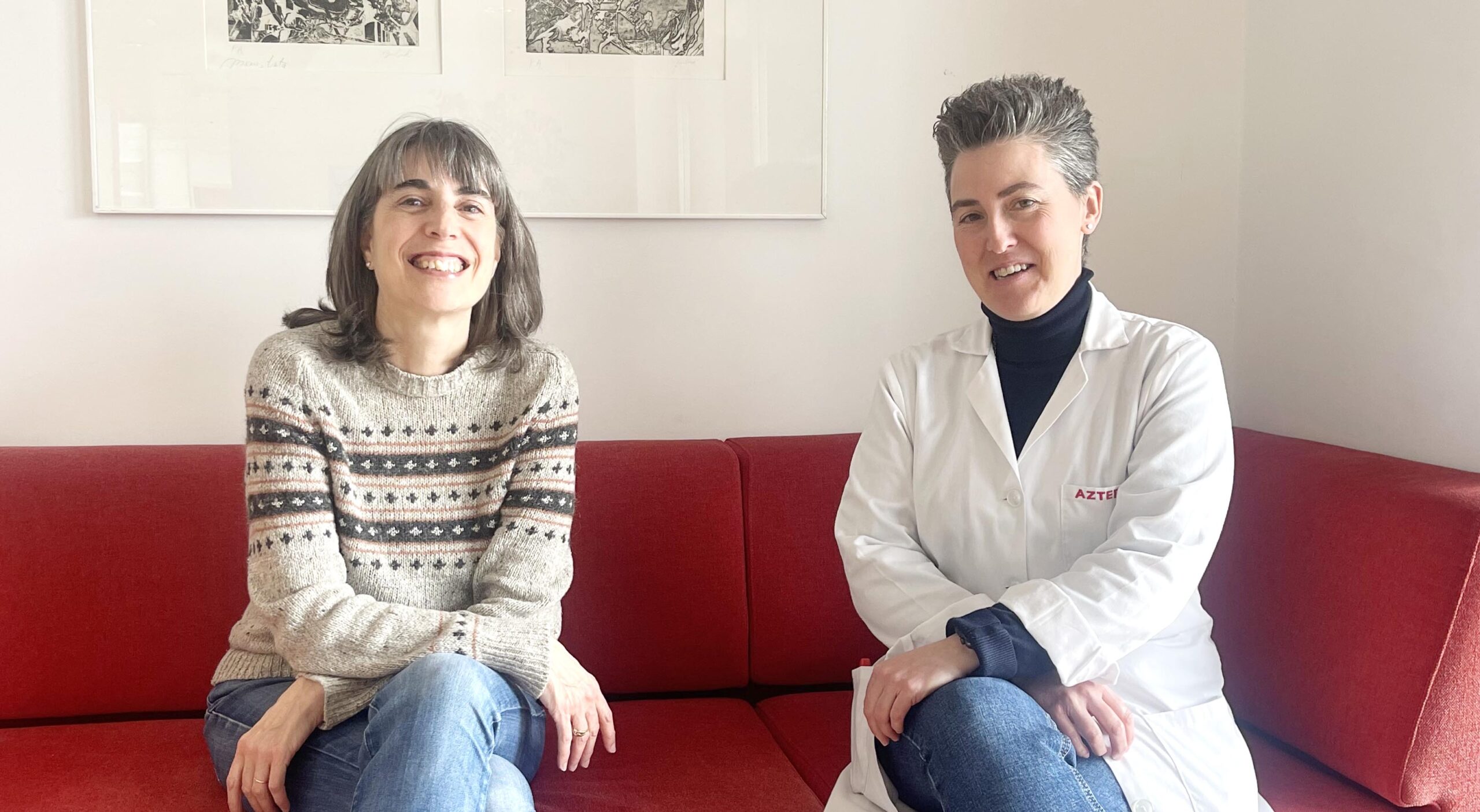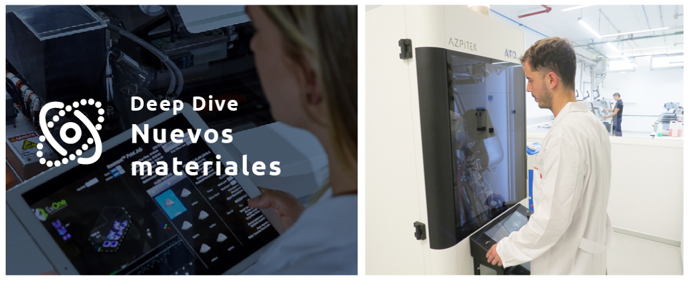We have brought together researcher Clara Delgado (left) and technician Miren Salaverria (right) to talk about their perception of the role of women in the scientific-technological environment and, more specifically, in the metal industry.

Can you briefly explain your field of work at AZTERLAN?
Clara: am a researcher in the area of Sustainability and Environment, where our goal is to develop solutions and technologies for the metal industry to improve its sustainability. We focus on areas such as the recycling of metallic materials, the reduction and revalorization of industrial waste, the reduction of emissions, the development of strategies for the use of waste heat, etc. I have been working at AZTERLAN for about eight years. Previously, I worked as a researcher at the GAIKER Technology Centre and I also was a technician and researcher in engineering and chemical companies.
Miren: My journey in AZTERLAN way is shorter; I’ve enrolled AZTERLAN about a year ago. I am a technician in the customer management area for testing and characterization services. Once we receive the orders and materials from our customers, our team defines the processes and works to be executed, from the extraction of test samples to the delivery of the report. Previously, I have worked in other sectors, but not in metallurgy.
What is your perception of the presence and participation of women in the technological and industrial field?
Clara: The presence of women in the industry is still very much in the minority. And I think it’s especially low in the metal industy. Due to our field of speciality [at AZTERLAN] we have a deep relationship with the industry, we visit many foundry plants, forges, steel mills… and we collaborate with other scientific and technological agents. In all cases, the presence of women is very low, even in research entities linked to the sector.
Miren: I agree that the presence of women in the industry is very low. I work in direct contact with personnel from industrial companies and my contacts are mostly men. However, I have to say that I have been pleasantly surprised by the number of women I have found in positions of responsibility among some of our most important client companies. Previously, I have worked in the world of construction, managing guilds, etc., and I have also had to work in very masculine environments and where the presence of women was even lower.
Clara: In my case, for example, our way of working is through R+D projects that have a certain duration in time and that are made up of work teams from the different member companies and organizations. In meetings of this type of projects, it is common for me to be the only woman. On some occasions we can be some more… But we tend to be a clear minority.
What do you think due to?
Clara: I think it’s because of several factors. On the one hand, there is the perception of one’s own work to be performed. Even though at academic level we are taught that we have access to any area of specialty, and I think there is no doubt about that nowadays, there are still jobs in the workplace that are still perceived as feminine or masculine. I believe that companies also have an important responsibility in this regard. As an anecdote, I can tell that among the industrial companies in which I have worked, I have experienced situations in which I was the only (and first) woman on the plant and there was no women’s changing room, so as a temporary solution I was enabled an unused area of the office building for that purpose; or that they didn’t have work clothes designed for women (for example, they provided us with a jumpsuit, so the simple act of going to the restroom, several times throughout a workday, was a difficult task). During our visits and collaboration with industrial companies, many of us have found that there are no work clothes or PPE of our size. These types of more “logistical” aspects, although they seem to be anecdotal, are a sign of the mentality and [lack of] sensitivity of companies and, at the same time, an obstacle for incorporating women into certain positions… since it requires a greater effort and they need to make adaptations, when staying the same is way easier.
Miren: it’s true. However, I think that while we specialize in our studies, the separation between men and women becomes more and more pronounced. That’s why I also think there are few female candidates for some positions. In my case, I have recycled myself into the metal industry in adulthood. When I was studying my “Mechanical Design and Manufacturing” degree, in addition to being the oldest person in my class, I also found that I was one of the few female. Logically, these are the people who will go out into the market to fill certain job positions.
Clara: In my case, I’m a chemical engineer. It’s true that, while studying my Chemistry degree, we were a lot of females. However, as the specialties were outlined, the segregation between men and women depending on the specialty became more pronounced.
What do you think are the keys to reversing this scenario?
Miren: Without thinking much, I would say education, training… However, I think that certain differences between the behaviors and choices of different genders are very intrinsic and begin to be seen very early in life. Educating within the family and showing that all roles can be and have to be played by anyone is important… But the messages and values that come from society, beyond the educational or family sphere, have a lot of weight.
Clara: Personally, I think turning the situation around is not so easy. I have to admit that I’m not very optimistic. Regardless of the work environment, and although women’s access to all spaces is “guaranteed”, at least formallly, I believe that there is a worrying regression in certain social and cultural values. On the one hand, I see young women who are very demanding on issues regarding equality, but at the same time I sometimes observe among the new generations a dangerous acceptance of roles of inferiority and dependence in their social relations and that sexist attitudes and mentalities persist, both in females and in males… I think that is going to influence the ground that has already been won in previous “battles”. Perhaps, our generation was more aware that certain rights that we now take for granted had to be fought hard and took a long time to achieve, because the message has reached us through the circumstances lived by our mothers and grandmothers. But I think that tension has been lost among the current generations who, thankfully, have grown up in a more egalitarian society and are not as aware of the cost of achievements.
Miren: I think family roles and the way in which responsibilities outside the work-sphere are distributed also have a lot to do with it. Women have always sacrificed their careers to take care of their families, whether caretakers were children or other adults. That situation, along with our career choices, has also led us to getting jobs with lower salaries… And, at the same time, the fact of having lower-income positions means that in many family economies the lowest salary is considered the one than can be “sacrified” or the one that is most viable to apply working hours reductions to or temporary leaves for work-life balance purposes.
Clara: I agree with that. I believe that the caregiving issue is one of particular importance. Socially, it is still very internalized that women are the caregivers, even at the level of professional care. If there is no transformation in this field, accompanied by a transformation of the social values that we have discussed before, it is not possible to reverse the current situation.



